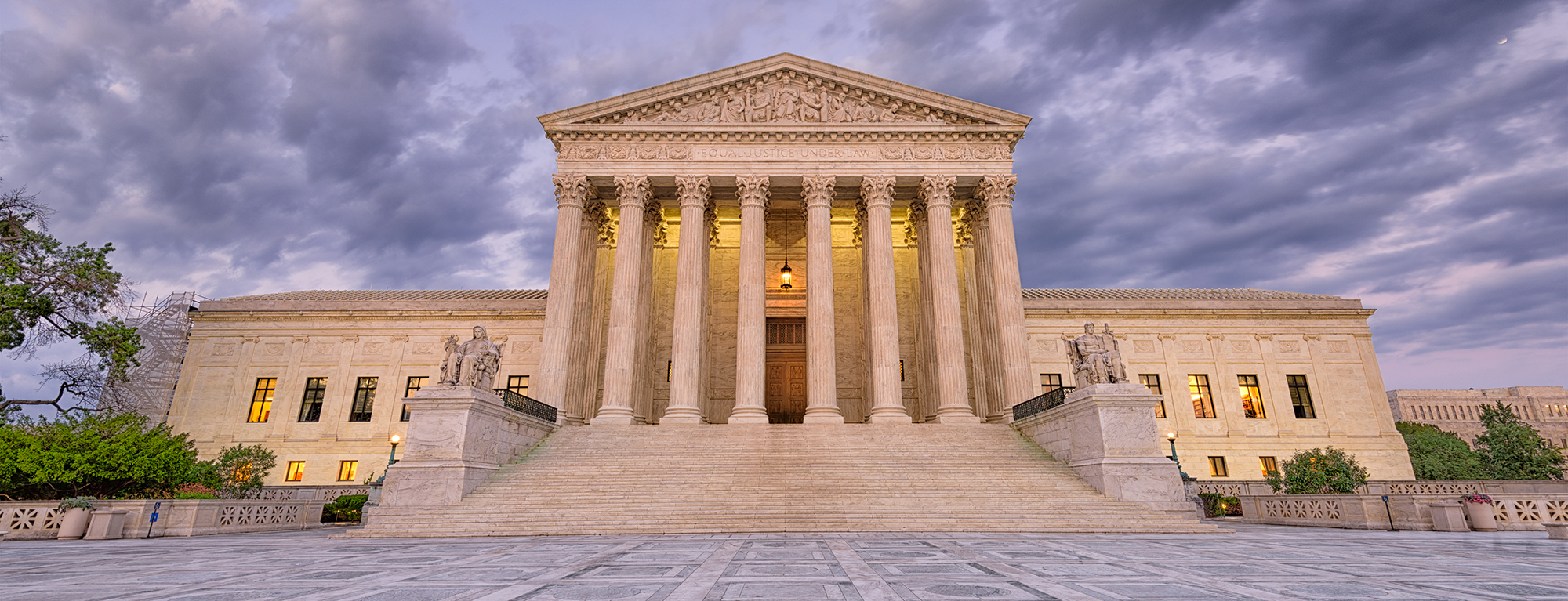
Last year a Gallup poll found that only 1 in 4 American adults had “a great deal” or “quite a lot” of confidence in the Supreme Court of the United States.
Among judges, we found the current figure to be only a little better: 1 in 3. And 4 in 10 of the judges who participated in the survey said they have “very little” confidence in the court.
Our Question of the Month* emailed to all NJC alumni on June 20 asked judges if they have “A great deal,” “Quite a lot,” “Some” or “Very little” confidence in the Supreme Court. That’s the same way Gallup’s annual confidence-in-institutions survey is phrased.
Among the 550 judges who responded, the largest group (41.45 percent) expressed “Very little” confidence in the high court. Next came “Some” confidence (26.18 percent).
Those expressing “A great deal” of confidence (22.55 percent) or “Quite a lot” of confidence (9.82 percent) added up to 32.37 percent or roughly 1 in 3 of the judges who responded.
Among the more than 200 judges who chose to comment – usually anonymously – many echoed complaints heard from the public at large.
“My faith in the integrity and independence of the Supreme Court has been shattered by recent events,” wrote Judge J.M. Bitney of the Barron County (WI) Circuit Court. “From opinion leaks, to illegal perks, to unethical conduct by Justices and their spouses, it’s hard not to become cynical….”
“Can’t have confidence in a court that can’t follow precedence and has allowed itself to become political,” wrote Judge Eugene M. Velazco, Jr., of the Merrillville (IN) Town Court. “Hard road back to regain public confidence.”
One anonymous judge said the court’s “wholesale abandonment of stare decisis,” possibly referring to the Dobbs decision reversing Roe v. Wade, was “dispiriting and, frankly, embarrassing. It makes it much harder for us to do our job here at the trial court level.”
Several judges mentioned recent revelations about justices having accepted and not reported expensive gifts, including lavish vacations with wealthy and politically active individuals.
“I assumed that they had to report income/expenses/gifts, as most judges have to do,” wrote an anonymous judge. “They are not honorable if there is no accountability and when caught (they) hide behind there being no requirement of honesty. Isn’t the essential criterion for the job honesty?”
Many judges said the justices should be subject to an enforceable code of ethics. Our Question of the Month in June 2022 found that more than 97 percent of judges support that idea.
“The refusal to abide by an ethics code is disturbing,” wrote Municipal Judge Richard Ginkowski of Pleasant Prairie, Wisconsin. “The justices of the peace in America’s smallest hamlets have to obey an ethics code, yet there are nine judges in the country who don’t, and they sit on the nation’s highest court.”
The Supreme Court also had its defenders, however. Many of the judges who expressed high confidence in the court speculated that recent criticisms were more the result of disagreement with the jurisprudence of the new conservative majority than any particular misconduct.
“Just because they have different opinions does not mean that I don’t have confidence in them,” wrote an anonymous judge. “No one ever agrees with the Supreme Court all the time. Their job is not to be agreeable or follow current trends. Their job is to follow the Constitution and interpret the laws that come before them. They are doing just fine.”
* Each month the College emails an informal, non-scientific, one-question survey to its more than 12,000 judicial alumni in the United States and abroad. The results, summarized in the NJC’s Judicial Edge Today, are not intended to be characterized as conclusive research findings. The NJC is a nonpartisan, nonpolitical organization and these monthly polls are designed to engage our alumni in thought-provoking dialogue.

CHICAGO – The American Bar Association Judicial Division announced recently that TheNational Ju...

The National Judicial College is mourning the loss of former faculty member Judge Duane Harves, who passed ...

As the world manages an evolving natural environment, The National Judicial College announced today that it...

Do’s Manage your cases systematically Devise a system that works for you and your organizational...

After 22 years of teaching judges, Tennessee Senior Judge Don Ash will retire as a regular faculty member a...